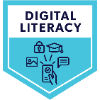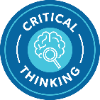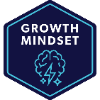Online Bachelor of Applied Science in Health Sciences (BAS)
Explore the principles of microbiology, epidemiology, and genetics as you prepare to tackle today’s most pressing challenges in patient care. This health sciences bachelor’s degree from American Public University (APU) familiarizes students with the inner workings of the healthcare industry.

Program Overview
Explore the medical and health sciences fields. This Bachelor of Applied Science in Health Sciences program examines the research and evidence that shape modern medicine.
Students will gain an understanding of the scientific principles that underpin contemporary healthcare systems. Weekly discussions test students’ knowledge of the history and evolution of patient-centered care.
This interdisciplinary online degree program engages current and aspiring healthcare professionals through courses that explore:
- Natural sciences
- Sports and health sciences
- Health information management
- Community health
- Chemistry
- Health economics
Students develop practical skills as they complete virtual lab activities. Weekly lectures and assignments follow a robust curriculum, taught by faculty with extensive backgrounds in the health sciences field.
This bachelor’s degree is also suitable for military personnel who have completed training in medical and health sciences.
Gain a Career-Relevant Health Sciences Education
This bachelor's degree program explores how the healthcare industry prevents disease and supports patient outcomes. Coursework also introduces students to the economic and legal aspects of healthcare.
Learners review breakthrough research as they discuss the connection between scientific exploration and medical and health services. Students will:
- Analyze healthcare policy issues from an economic and financial perspective
- Create a plan for efficient healthcare system management
- Evaluate and develop solutions and strategies for complex problems within the healthcare industry
- Apply ethical standards for decision-making in healthcare organizations
- Assess technologies and healthcare informatics for implementation in healthcare organizations
The health sciences major familiarizes students with the research protocols, ethical guidelines, and economic factors that influence today’s healthcare system. Courses cover everything from human anatomy and physiology to health policy and management.
Graduates may have potential career opportunities as:
- Community health workers, who provide health education, support, and resource referrals to individuals and communities
- Clinical laboratory technicians/medical technologists, who analyze blood, tissue, and fluid samples to help healthcare providers diagnose diseases
- Health educators, who teach others about healthy habits and preventative care, often in schools or community organizations
This degree program may also serve as a springboard to more advanced academic endeavors. For example, graduates may pursue further study in fields like nursing, public health, occupational therapy, or medicine.
Courses examine how medical practitioners and allied health professionals work together to promote wellness and support patient care. As they engage in weekly discussions and complete virtual lab exercises, learners sharpen their analytical, leadership, and communication skills.
The health sciences major prepares graduates to:
- Manage healthcare systems by overseeing budgets, allocating resources, and driving organizational improvements
- Develop and implement strategies to address multifaceted healthcare challenges and improve patient outcomes
- Apply ethical principles and regulatory standards to support quality patient care, compliance, and sound decision-making
- Leverage health technologies and informatics tools to enhance efficiency, optimize data, and strengthen healthcare delivery
“ The health sciences program is a holistic experience. It exposes students to a variety of aspects of health and healthcare, allowing them to obtain a versatile skill set. ”
Browse Required Courses for This Bachelor’s Degree in Health Sciences
Virtual lab activities equip learners with research skills as they explore the fundamentals of microbiology, genetics, chemistry, and human anatomy and physiology.
The lessons and laboratory exercises focus on homeostasis; metabolism; acid-base balance; human growth and development; and the body’s endocrine, cardiovascular, lymphatic, respiratory, urinary, digestive, and reproductive systems. Students are also required to successfully complete a cumulative assessment of anatomy and physiology objectives from both BIOL250 and BIOL251. This course also includes a virtual laboratory component.
NOTE: Students may take either BIOL201 or BIOL250/BIOL251 for credit, but not both versions of the anatomy and physiology courses. (Prerequisite: BIOL250)
All Course Requirements for Health Sciences
Build Lasting Connections Through APU’s Health Science Clubs and Other Online Student Communities
Network with classmates and faculty through university clubs and organizations. These groups offer the perfect opportunity to explore interests, develop leadership skills, and meet fellow students.
APU’s health science communities include:
Learn more about student activities and virtual clubs.
Signature Skills: A Learning Revolution
Integrated into our student curriculum, these signature skills teach you how to move through the world with confidence. The road to success is paved with signature skills learned at APUS.
-

Encouraging students to use current technologies, critically evaluate emerging tools, and responsibly engage with digital and AI systems.
-

Strengthening the ability in all students to analyze information objectively, question assumptions, explore alternatives, and develop skills essential for navigating continual change.
-

Helping students thrive in dynamic workplaces by reinforcing adaptability, resilience, innovation, and self-awareness.
APU is here to support your student journey
We know your well-being is vital to your success. That's why we offer a range of supportive resources to help you throughout your academic journey.
- Career Coaching
- 24/7 Mental Health Support
- Admissions & Advising Support
- Student Life
Career Coaching
Get individualized guidance to help you explore career options, strengthen professional skills, and prepare for the next step in your journey. Whether you’re just entering the workforce, changing fields, or advancing your professional knowledge, our career services team is here to help you translate your goals into action.
Learn More24/7 Mental Health Support
Your well-being is essential to your success. That’s why APU offers access to confidential, flexible, and around-the-clock mental health support. Through our partnerships with telehealth apps, you can connect with peers and professionals anytime you need to manage stress, maintain balance, or find motivation.
Learn MoreAdmissions & Advising Support
From your first course to the day you graduate, our admissions and advising teams are here to guide you every step of the way. You’ll receive personalized assistance with enrollment, program selection, and degree planning from professionals who understand the needs of adult learners.
Learn MoreStudent Life
At APU, learning extends far beyond the classroom. Enrich your college experience and expand your network by getting involved in any of our student organizations. From cultural and social organizations to program-specific honor societies, you’ll find a group to help you thrive during and after your studies.
Learn MoreEarn a Health Sciences Degree at an Affordable Cost
American Public University makes higher education accessible with low tuition rates, university grants, and generous transfer credit opportunities. This Bachelor of Applied Science program is fully online, eliminating the need for expenses like campus housing and commuting costs. Learners receive a high-quality education at an affordable rate.
- $0 Application Fee
- $0 Textbooks & Ebooks
- $0 Transfer Credit Evaluation
Earning a degree is a valuable investment, but it needs to fit into your budget. Our tuition estimator can help you estimate your tuition and fees, so you can plan a manageable path to your educational goals. For full details, please refer to the financial aid cost of attendance (COA). This estimate does not include course materials, supplies, equipment, software and other expenses such as lab fees. You may be eligible for partnership grants through your employer. Speak with your admissions representative for more details.
APU Removes Barriers
Quality Education Shouldn’t Break the Bank
We offer special rates and grants for eligible students and limit fees to help keep the cost of higher education within reach. Find out how you can save on tuition expenses with our:
- Transfer Credits
- Financial Aid
- Private Loans & Scholarships
- Military & Veteran Benefits
Transfer Credits
APU makes it easy to earn credit for the work you’ve already done. We accept transfer credits from prior college coursework, professional training, exams, and certifications. We’ll evaluate your transcripts at no cost and help you maximize eligible credits so you can save time, reduce costs, and stay focused on reaching your education goals sooner.
Learn MoreFinancial Aid
We’re committed to making quality education accessible and affordable. APU participates in federal financial aid programs, including grants and loans for those who qualify. Our Financial Aid Office can provide personalized guidance to help you understand your options, complete required forms, and make an informed decision about paying for your education.
Learn MorePrivate Loans & Scholarships
In addition to federal financial aid, some APU students choose to explore private education loans or external scholarships to help fund their studies. We encourage all students to first complete the Free Application for Federal Student Aid (FAFSA) to determine eligibility for federal student aid before considering private options. Be sure to research lenders carefully, compare terms, and understand your rights and responsibilities as a borrower.
Learn MoreMilitary & Veterans Benefits
Learn More
Apply to APU’s Online Health Sciences Degree Program Today
Our online degree is designed to fit your life, allowing you to balance work, family life, and everyday commitments alongside your studies. Learners can attend classes and submit weekly assignments from anywhere with internet access.
New classes begin each month, with no set login times, giving you the flexibility to start working on your degree whenever it’s convenient. Courses run from 8 to 16 weeks, and class materials are available online 24/7.
Review our admission requirements and submit your application today.
- No Entrance Exams No SAT® or ACT® required for undergraduate programs7
- No Application Fee For undergraduate courses
- Courses Start Monthly Enroll now, start next month
- All APU undergraduate programs require a minimum of a high school diploma or equivalent (i.e., GED). Please read all undergraduate admission requirements before applying to this program and be prepared to submit the required documentation.
- There is no fee to complete the APU admission application for this program. View steps to apply.
Learn More About Pursuing a Bachelor’s Degree in Health Sciences
APU’s health sciences program introduces students to the legal and ethical standards that regulate the healthcare field. From managing sensitive data to delivering treatments, medical professionals must follow strict regulations and uphold patient trust.
Students review patients’ rights and discuss the moral dilemmas that affect healthcare organizations. Coursework covers legal requirements for Quality Improvement (QI) and how providers use Total Quality Management (TQM) to analyze, evaluate, and optimize health services.
QI and TQM are essential for legal compliance and safe, efficient healthcare. Learners explore technologies that facilitate patient-centered care, including health informatics and analytics systems. These systems enable providers to collect, store, and retrieve data to guide patient care decisions. Learners will also study technology’s role in evidence-based medicine and modern healthcare delivery.
In addition, class discussions and assignments examine health equity, social justice, and ethical pitfalls of medical technologies. Learners will develop critical-thinking skills by analyzing trends in patient care and contemplating the future of medicine.
Health sciences represent several disciplines, including biology, chemistry, and exercise physiology. Health science education plays a key role in bridging the gap between research and population health. It enables healthcare practitioners to promote wellness, prevent diseases from spreading, and help to support health equity in their communities.
APU’s health sciences program equips students with the expertise and capabilities relevant to these objectives. Courses explore microbiology principles to help students understand how illnesses spread, and learners study microbial infections of the eyes, skin, and organ systems.
Additionally, students pursuing this bachelor’s degree in health sciences will evaluate disease prevention strategies as they study epidemiology. Class discussions address moral issues and ethical challenges that arise when balancing patient rights and community health. Lectures also cover the nuances of patient advocacy.
Both types of bachelor’s degrees combine comprehensive coursework to help students understand how scientific research influences health outcomes. Additionally, both degrees can prepare learners for graduate education. Still, even though a Bachelor of Science (BS) and a Bachelor of Applied Science (BAS) share similarities, there are several distinctions worth noting.
A BS program’s curriculum typically teaches students about the leading theories within the discipline. Students strengthen critical thinking and technical skills while gaining a solid understanding of scientific principles. Because courses are usually research-oriented, the BS pathway often helps prepare learners for graduate programs and research opportunities.
Alternatively, BAS programs emphasize career-relevant education and skills. Students in healthcare occupations may especially find the curriculum engaging. Pursuing a BAS could also be a practical choice for those students who have previously completed an associate degree.
Public health professionals apply their advanced proficiencies to promote healthy living throughout entire populations. They monitor community health concerns and oversee vaccination campaigns to help mitigate disease outbreaks.
Coursework provides students with an understanding of how diseases spread and the factors and conditions that can lead to epidemics. Students explore how healthcare professionals support outbreak investigations as they learn about methods for analyzing and reducing disease transmission rates. Learners also discuss how public health officials assess data to help implement and enforce policies that protect community health.
APU’s health sciences major introduces learners to specialized areas of study, including genetics, epidemiology, and health informatics. This BAS may help students prepare to pursue additional education at the graduate level.
The curriculum integrates insights from seasoned health education professionals for a comprehensive overview of health-related topics. Courses strengthen critical-thinking and analytical skills while teaching students how to pose meaningful questions and apply clinical research methods to real-world scenarios. Learners also discuss how the medical community identifies public health priorities.
The allied health field includes a diverse group of healthcare professionals. They help to provide preventative care and specialized treatments, like physical therapy or occupational therapy. Allied health professionals may apply their insights to treat acute and chronic diseases as well.
Additionally, certain allied health professions are indirectly involved in patient care. For example, roles in healthcare administration and health systems management are instrumental to the medical field overall.
Healthcare Administration: This degree familiarizes students with management and leadership roles in the healthcare environment. You’ll learn about a broad range of topics, including healthcare systems, health policy, and health information management.
Health Information Management: Examines the operations management through the lens of the healthcare environment. Courses explore health information management software, medical terminology, insurance programs, and legal and ethical issues that impact patient care.
Public Health: Learn how health officials tackle complex challenges and discuss the advancement of public health education in the U.S. Courses cover how healthcare policies and advocates can help communities adopt healthy lifestyles.
Sports and Health Sciences: Discover the scientific study of human movement and behavior. Courses focus on exercise science, exercise testing and programming, fitness, and nutrition.
Fueled by technological advancements and virtual communications, online health science degree programs are both enriching and engaging. Students can interact with classmates and faculty from anywhere in the world as they acquire new, career-relevant skills.
Still, there are several key factors learners must review when comparing universities:
- Accreditation: Accreditation signifies that an institution meets academic standards.
- Scheduling: Some online programs require students to log into classes at a specific day and time each week. Online classes at American Public University are asynchronous, meaning that there are no set login times. Instead, students participate in discussion forums and complete written assignments every week.
- Retention and Graduation Rates: Higher retention and completion rates signal that the online program offers strong academic support.
There are different educational requirements for different nursing roles. A health science degree alone does not qualify someone to become a nurse. Still, studying health science may be a practical choice for learners who are new to healthcare and not yet sure if they want to pursue nursing opportunities.
APU’s health science program introduces students to the fundamentals of the natural sciences. Learners study anatomy and physiology, biology, and other disciplines that may help lay the groundwork for nursing school.
Request More Information
Interested in a specific program or wondering about the application process? Fill out the quick form below, and we’ll follow up with details tailored to your goals. Click here if you are a current student and need assistance.
Consumer Information
Maryland Residents learn more about costs, completion rates, median debt, and more.
The University reserves the right to accept or deny credits according to policies outlined on our University website. Please see the University's transfer credit policy webpage for complete information.
The Preferred Military Rate is $250 per credit hour for undergraduate and master's-level courses. This rate is available to all U.S. active-duty servicemembers, National Guard members, Reservists, and military families, including parents, spouses, legal partners, siblings, and dependents.
See all military student benefits.




